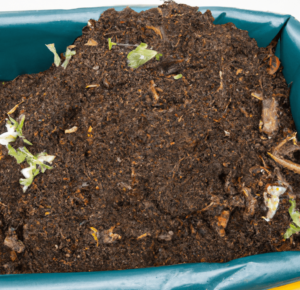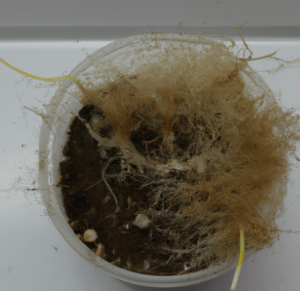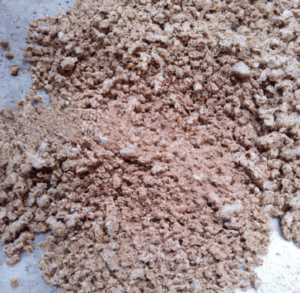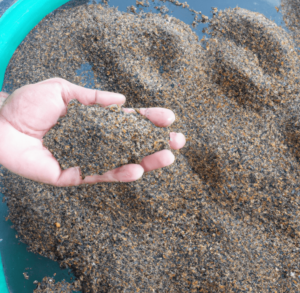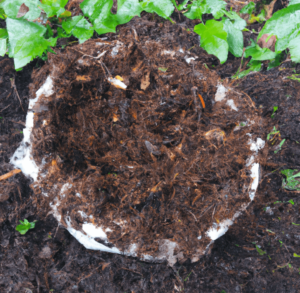In sustainable agriculture, which aims to meet the demands of the present generation while protecting the resources for future ones, organic fertilizers are essential. Different from chemical fertilizers, which are manufactured from manmade materials and minerals, organic fertilizers are made from natural sources including compost, animal waste, and plant-based components. Reduced agricultural runoff, improved crop health, support for sustainable agriculture, and support for soil biota are just a few benefits of using organic fertilizers in your garden. So, what is the role of organic fertilizers in sustainable agriculture?
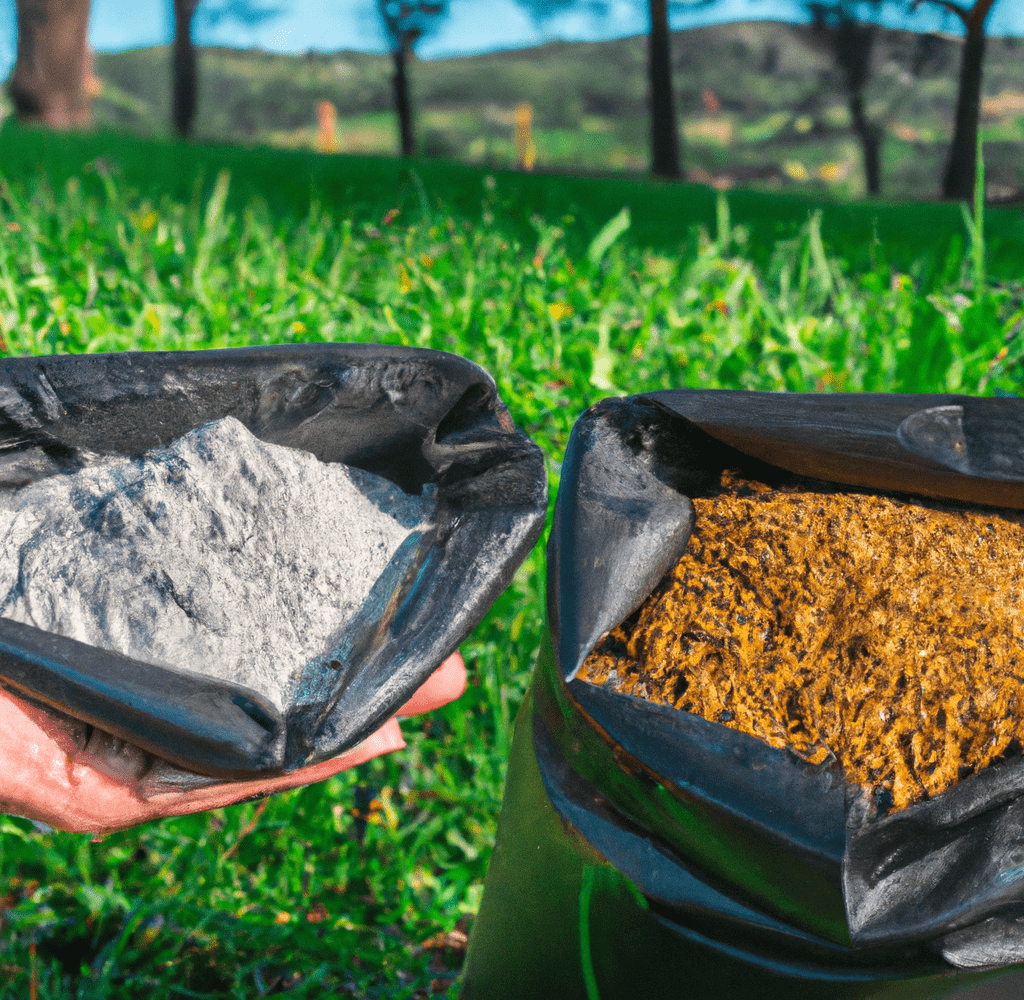
Types of Organic Fertilizers
Before we learn more about the role of organic fertilizers in sustainable agriculture, here are the different types of natural fertilizers:
- Manure: One of the most popular forms of organic fertilizer, manure is a rich source of potassium, phosphorus, and nitrogen and can help to increase the soil’s fertility and texture.
- Compost: Compost is a fantastic source of nutrients for plants and is created from organic debris that has decomposed. It fosters a healthy soil biota, enhances soil structure, and lessens the possibility of agricultural runoff.
- Bone Meal: A bone meal is a sort of fertilizer that is created by grinding up animal bones. It is rich in phosphorus, which is necessary for the growth of roots and flowers.
- Blood Meal: Blood meal is frequently used to promote the growth of leafy greens and other quickly developing plants since it is a rich source of nitrogen.
- Fish emulsion is a fantastic supply of potassium, phosphorus, and nitrogen and is prepared from entire fish or fish pieces. Other trace elements that are critical for plant growth may also be provided.
The best organic fertilizer for your particular needs should be chosen because each type has distinct advantages of its own.
Manure
As you learn more about the role of organic fertilizers in sustainable agriculture, you’ll learn about manure. Manure is a sort of organic fertilizer that is frequently used in farming and is crucial to sustainable farming.
Utilizing manure in agriculture has many advantages, one of which is that it lessens agricultural runoff, which can have a detrimental effect on the environment. Manure releases slowly and doesn’t contain dangerous compounds that can contaminate groundwater, so it protects the environment and guarantees that crops get the nutrients they need for a longer length of time. Manure used in agriculture helps the soil biota, which is made up of bacteria, fungi, and other microorganisms, in addition to lowering agricultural runoff.
Manure’s organic matter contributes to the structure and fertility of the soil, which promotes better crop growth and higher yields. Finally, manure use in agriculture can increase food output by giving crops the nutrients they need to develop into healthy, robust plants.
Compost
By lowering the likelihood of agricultural runoff and fostering a healthy soil biota, compost is a sort of organic fertilizer that can significantly aid in the production of food that is both sustainable and abundant. When you learn about the role of organic fertilizers in sustainable agriculture, you’ll learn that compost is a highly effective technique to contribute vital nutrients to the soil since it is made when organic matter, such as food waste and yard trimmings, breaks down.
Compost’s ability to improve soil structure is one of its main advantages since it can result in better water retention and increased plant nutrient uptake. Thus, fewer synthetic fertilizers and pesticides may be required, and crops may grow stronger and more resilient as a result. Because it contains a variety of helpful microorganisms that can serve to improve plant growth and soil fertility, compost also aids in the promotion of healthy soil biota.
Compost can also aid in lowering the number of greenhouse gases produced during decomposition because it is manufactured from waste items that would otherwise end up in landfills. Compost can be a crucial component in the success of any agricultural enterprise, whether it is utilized as a solo fertilizer or as part of a more comprehensive soil management strategy.
Green Manure
A sort of organic fertilizer known as “green manure” is produced from living plants that are raised expressly with the intention of enhancing soil health. When you learn about the role of organic fertilizers in agriculture, you’ll also know that green manure lowers the need for artificial fertilizers and promotes sustainable farming.
Green manure serves to increase the health and fertility of the soil by providing organic matter, which promotes better crop growth and higher yields. This lessens the need for artificial fertilizers and chemicals, which could affect the soil biota and ecosystem.
Rich in organic content, green manure promotes the development of the soil biota, which includes bacteria, fungi, and other microbes. This contributes to enhancing the structure and fertility of the soil! Incorporating green manure into your agricultural activities can support sustainable agriculture and enhance soil health, regardless of whether you are a farmer, gardener, or simply someone who cares about the environment. Green manure is a crucial part of sustainable agriculture since it lessens the need for chemical fertilizers and gives crops the nutrients they require for healthy development.
Rock dust
A type of organic fertilizer, rock dust is created by grinding rocks into tiny particles and is used after gardeners learn more about the role of organic fertilizers in sustainable agriculture. It’s sometimes referred to as rock minerals or rock flour and is abundant in minerals and trace elements, which are crucial for soil health and plant growth.
Rock dust is an example of an organic fertilizer that is different from synthetic fertilizers in that it comes from natural sources rather than being chemically altered. They function by gradually dispersing their nutrients over time, giving the soil and plants a consistent supply of vital nutrients. This contributes to the development of a robust and healthy soil biota, which includes the bacteria, fungus, and other microbes necessary for preserving soil fertility and structure.
In terms of utilization, rock dust is frequently applied as a soil amendment to enhance the soil’s nutritional content and structure. If you’ve learned about the importance of soil pH in fertilizers, you may notice that rock dust can be used on lawns, agricultural fields, and flower beds. It is particularly helpful for addressing soil shortages and repairing deteriorated soils.
Biochar
When you’re doing research on the role of organic fertilizers in sustainable agriculture, you may read about biochar which is created by burning plant material at high temperatures. Among the many advantages of using biochar in agriculture are the enhancement of soil fertility and the promotion of sustainable farming.
Carbon, nitrogen, and phosphorus are three nutrients found in abundance in biochar and are crucial for plant growth. The high-temperature method used to make biochar also results in a porous structure that helps hold onto water and nutrients, extending the time that they are available to crops.
The use of biochar in agriculture not only increases soil fertility but also has favorable effects on the environment and the climate. Because the carbon in biochar is stable and does not break down fast, it stays in the soil for a long time and helps to increase soil fertility and health.
Including biochar in your agricultural activities can support sustainable agriculture and enhance soil health, whether you are a farmer, gardener, or just someone who cares about the environment.
Benefits of Organic Fertilizers
The use of organic fertilizers, which have several advantages over conventional chemical fertilizers, is crucial to sustainable agriculture. After learning about the role of organic fertilizers in sustainable agriculture, you can promote sustainable agriculture and enhance soil health by including organic fertilizers in your agricultural activities.
Organic fertilizers are generated from safe, non-toxic, natural, and renewable materials, as opposed to chemical fertilizers, which can affect the ecosystem and the soil biota. The use of organic fertilizers in agriculture not only promotes crop growth and health but is also safer for the environment.
Rich in organic materials, organic fertilizers promote the development of the soil biota, which includes bacteria, fungi, and other microorganisms. This contributes to enhancing the structure and fertility of the soil, resulting in better crop development and increased yields.
Last but not least, the use of organic fertilizers in farming promotes sustainable agriculture by lowering waste generation and promoting the values of environmental preservation and financial viability.
Nutrient Cycling
Because it contributes to waste reduction, prevents agricultural runoff, and supports the well-being of crops and soil biota, nutrient cycling is a crucial component of sustainable agriculture. After learning about, the role of organic fertilizers in sustainable agriculture nutrient cycling can be included in agricultural methods to support sustainable agriculture and enhance soil health.
One of the key advantages of nutrient cycling in agriculture is that it contributes to waste reduction and runoff prevention. Farmers may lessen their reliance on artificial fertilizers and prevent the loss of essential nutrients by cycling nutrients through the soil and back into their crops. This lessens the negative environmental effects of agriculture and helps to keep streams and other ecosystems clean.
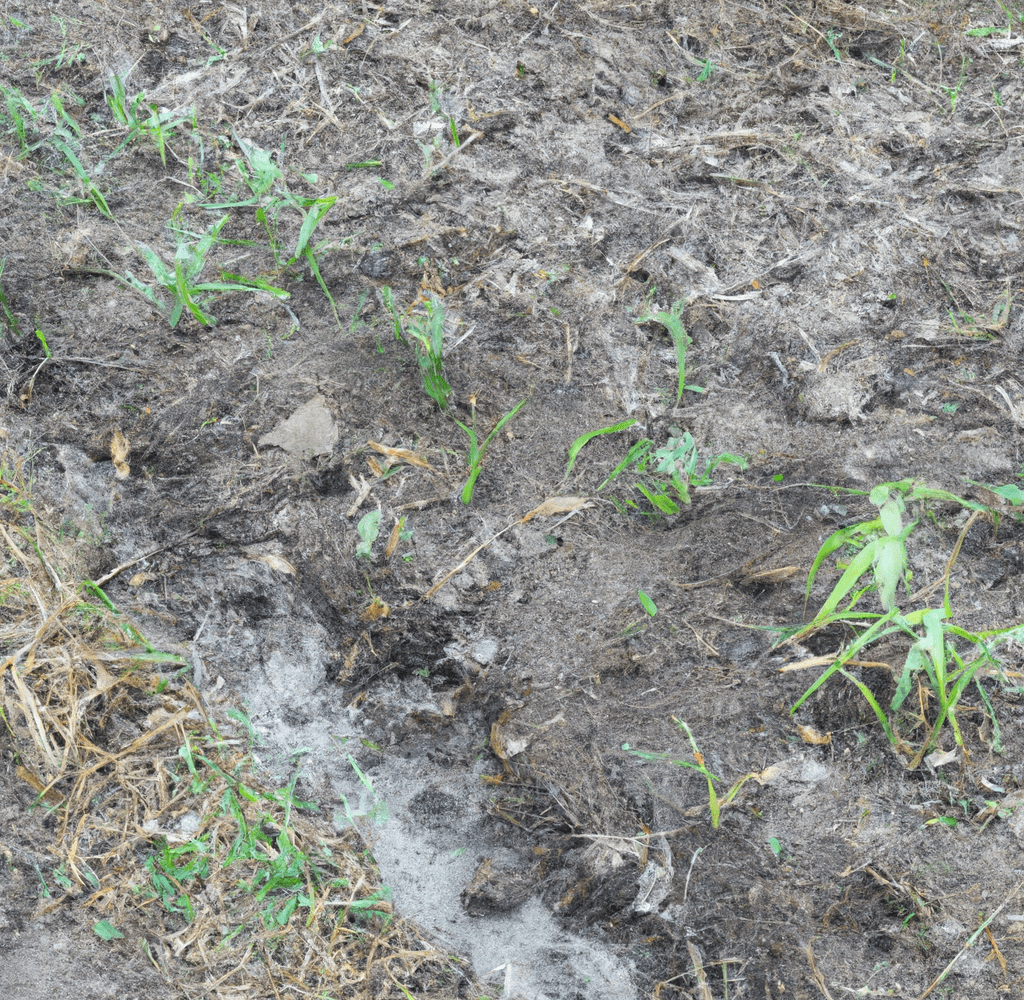
Reduced Environmental Impact
Chemical fertilizer use in agriculture has the potential to have detrimental effects on the environment, including the nutrient depletion of the soil, the deterioration of healthy soil biota, and the contamination of water sources from agricultural runoff. Many farmers are using organic fertilizers like rock dust, which have several advantages over conventional chemical fertilizers, to lessen these effects because of the role of organic fertilizers in sustainable agriculture.
One of the main benefits of using organic fertilizers, such as rock dust, is that they offer a more environmentally friendly supply of nutrients for crops without having the same adverse effects as chemical fertilizers. Natural rock minerals, which are plentiful and renewable, are the source of rock dust. Organic fertilizers like rock dust, in contrast to chemical fertilizers, are not chemically treated and do not release all of their nutrients at once. This gradual release lessens the possibility of agricultural runoff contaminating the soil and water.
Improved Crop Yields
Utilizing organic fertilizers in agriculture can assist increase crop yields and promote sustainable agricultural practices, which is the role of organic fertilizers in sustainable agriculture. By promoting the well-being of the soil biota, organic fertilizers can, among other things, increase crop yields. Organic fertilizers are safe and non-toxic, helping to lessen the environmental impact of agriculture, in contrast to chemical fertilizers, which can be hazardous to the environment and contribute to agricultural runoff.
Methods of Organic Fertilization
In order to maintain healthy soil and grow productive crops, organic fertilizer is a crucial component of sustainable agriculture. You can use the following after learning about the role of organic fertilizers in sustainable agriculture:
- The process of creating compost, a rich, nutrient-rich soil amendment, involves decomposing organic matter, such as plant materials, food waste, and animal manure. Compost can act as a natural supply of vital nutrients and trace elements while also enhancing soil structure, water retention, and fertility.
- Planting cover crops on fallow areas is a key component of another efficient organic fertilization technique known as green manures. When these crops are later tilled into the soil, they increase soil structure and fertility by adding organic matter and nutrients. A sustainable method of improving soil health and lowering the risk of agricultural runoff is the use of green manures.
- Making rock dust is accomplished by finely grinding rocks and is abundant in minerals and trace elements, which are crucial for soil health and plant growth. Rock dust can enhance soil fertility and structure and encourage the development of a thriving soil biota when it is put into the soil.
Direct Application
Direct application of organic fertilizers contributes significantly to sustainable agriculture by assisting in crop development, reducing agricultural runoff, and preserving the health of the soil biota. Direct application of organic fertilizers aids in the health of the soil biota and encourages the growth of crops in addition to decreasing agricultural runoff. Rich in organic materials, organic fertilizers promote the development of the soil biota, which includes bacteria, fungi, and other microorganisms. Use this after learning about the role of organic fertilizers in sustainable agriculture to enhance the structure and fertility of the soil, resulting in better crop development and increased yields.
Cover Cropping
After you learn about the role of organic fertilizers in sustainable agriculture you can contribute to the improvement of the soil’s structure and fertility by introducing a cover crop into your agricultural methods. Furthermore, by assisting in the fixation of nitrogen and other elements in the soil, cover crops can lessen the demand for chemical fertilizers while promoting sustainable agriculture.
Cover cropping not only decreases the requirement for chemical fertilizers but also promotes the growth of soil biota and crop growth. Cover crops contribute to the structure and fertility of the soil by integrating organic matter, which supports the growth of crops and the well-being of the soil biota.
Intercropping
Growing different crops in the same field either concurrently or in alternate seasons is known as intercropping. When combined with organic fertilizers like rock dust, this approach has the potential to be a potent tool for enhancing soil health and productivity.
Intercropping has many advantages, one of which is that it can improve soil health by encouraging the development of soil biota. The bacteria, fungi, and other microorganisms that make up the soil biota are essential for preserving the fertility and structure of the soil. Intercropping can supply a variety of organic matter, nutrients, and trace elements that support the formation of soil biota, supporting healthy soil and robust, resilient crops by cultivating a broad mix of crops.
Intercropping can assist increase crop yields and productivity in addition to enhancing soil health. Farmers can maximize the use of the available resources and boost overall productivity by cultivating numerous crops in the same field, each of which has distinct advantages. For instance, some crops might be better suited to particular soil types or climates, whilst others might offer advantageous shade or enhance soil structure.
Crop Rotation
Crop rotation is a crucial part of sustainable agriculture, and it can have a significant influence on soil health, crop output, and the environment when used in conjunction with organic fertilizers. Crop rotation has several advantages, one of which is that it can lessen the demand for chemical fertilizers.
Farmers and gardeners can reduce the demand for chemical fertilizers and promote the growth of a healthy soil biota by rotating crops and using organic fertilizers to increase the fertility and structure of the soil. Crop rotation also offers significant ecological advantages since it supports crop growth, enhances soil health, and lowers the danger of soil-borne illnesses and pests. Crop rotation can also lessen the consequences of climate change because it encourages the effective use of soil nutrients and lowers the risk of soil degradation.
Challenges of Using Organic Fertilizers
Although organic fertilizers provide many advantages for crops and the environment, there are still a number of obstacles preventing their widespread usage. The lack of fast results compared to chemical fertilizers is one of the main obstacles. While organic fertilizers may not show their full effects for several months, chemical fertilizers can produce rapid and effective results in crop development. This can make switching from chemical to organic fertilizers challenging for farmers, especially if they are under pressure to generate large yields quickly.
The lack of established techniques for making and using organic fertilizers is another problem. This can make it challenging for farmers to determine the proper sort and quantity of fertilizer to use, which may lead to under or over-fertilization. Reduced agricultural yields and even harm to the soil biota may result from this.
In addition, organic fertilizers are frequently more expensive than chemical fertilizers, which can make it challenging for farmers to switch to organic farming, particularly if they are already having financial issues. It may be difficult for farmers to adapt to more sustainable practices in some areas due to the absence of organic fertilizers.
Timing of Application
The timing of the application of organic fertilizers is crucial for maximizing their effectiveness in sustainable agriculture. When applied at the proper time, fertilizer can stimulate crop development, enhance soil health, and lower the chance of environmental impact.
There are a number of things to take into account when it comes to timing, such as the type of crop being cultivated, the condition of the soil, and the presence of microorganisms. To guarantee that the nutrients in the fertilizer are properly absorbed by the soil, it is sometimes better to apply organic fertilizers when the soil is damp.
Furthermore, using organic fertilizers appropriately can stimulate crop growth, lower the danger of soil deterioration, and encourage good grazing habits. The presence of microorganisms in the soil is a crucial factor to take into account when deciding when to apply organic fertilizer. Applying organic fertilizers at the proper time can aid in promoting the growth and development of the microorganisms that are essential for breaking down the organic materials in the soil.
Nutrient Availability
The availability of nutrients plays a significant role in a crop’s success. Chemical fertilizers are frequently promoted as offering quick and effective crop growth outcomes, but they can also cause nutrient imbalances in the soil. In contrast, organic fertilizers often take longer to release their nutrients but offer a crop with a more even distribution of nutrients throughout time.
Chemical fertilizer use can result in agricultural runoff, which can pollute neighboring water sources with extra nutrients and other contaminants. This may have detrimental effects on the ecosystem, such as promoting the growth of harmful algae and lowering the oxygen content of streams.
Organic fertilizers, on the other hand, are more likely to be assimilated and used by the soil, lowering the possibility of agricultural runoff and other environmental issues. However, organic fertilizers’ slower delivery of nutrients can also provide problems for farmers. It may take several months for the advantages of using organic fertilizer to become evident, and it can be challenging to calculate the ideal dosage.
Cost and Accessibility
While using organic fertilizers is becoming more and more common in sustainable agriculture, it’s necessary to take their price and availability into account. Organic fertilizers may occasionally be more expensive than chemical fertilizers, making them less affordable for growers or gardeners on a tight budget.
However, it’s crucial to take into account the long-term advantages of utilizing organic fertilizers, since they can eventually boost crop yields, reduce agricultural runoff, and support a healthy soil biota. Additionally, a lot of organic fertilizers are produced using materials that are easily accessible locally, which makes them more widely available and long-lasting.
Making your own organic fertilizers from compost, manure, or green manure is one approach to cutting the expense of these fertilizers. You may cut your input costs and promote the health of your soil at the same time by making your own organic fertilizers.
Bottom Line: The Role of Organic Fertilizers in Sustainable Agriculture
The role of organic fertilizers in sustainable agriculture is vital. Organic fertilizers can increase crop yields, improve soil health, and reduce agricultural runoff, resulting in more productive and sustainable farming operations.
Numerous kinds of organic fertilizers, such as manure, compost, green manure, biochar, and others, have been covered in this article. It’s crucial that we keep looking for new and creative ways to advance sustainable agricultural techniques as the world population keeps expanding and food demand rises. It’s advised that additional research be done in the future on the use of organic fertilizers in sustainable agriculture, including the best application techniques and the effects of organic fertilizers on crop yields and soil health. Organic fertilizers have the potential to be extremely important in ensuring that agriculture has a sustainable and fruitful future with sustained study and innovation.
FAQs on The Role of Organic Fertilizers in Sustainable Agriculture
Why is sustainable agriculture important? What is it?
The goal of sustainable agriculture is to provide for the food needs of the present generation while safeguarding the resources for future ones. The use of organic fertilizers in this kind of agriculture is essential.
Organic fertilizers: what are they?
Organic fertilizers are manufactured from natural ingredients including compost, animal waste, and plant-based materials. They differ from chemical fertilizers, which are created from minerals and man-made components.
What advantages do organic fertilizers in farming have?
Reduced agricultural runoff, better crop health, support for sustainable agriculture, and support for soil biota are a few advantages of utilizing organic fertilizers.
What varieties of organic fertilizers are there?
Manure, compost, bone meal, blood meal, fish emulsion, green manure, and rock dust are a few examples of organic fertilizers.
What is manure, and what advantages does it have for farming?
Popular organic fertilizer derived from animal waste is called manure. It improves the soil’s structure and fertility, benefits the soil biota, and lessens agricultural runoff.
What is compost, and what advantages does it provide for farming?
Compost is a product of decomposed organic waste that provides nutrients to plants. Agricultural runoff is less likely because it enhances soil structure, encourages a healthy soil biota, and does all three.
What is green manure, and how is it useful to farming?
Green manure is an organic fertilizer made from growing plants that improves the condition of the soil. It supplies organic matter, encourages the growth of the soil biota, and helps environmentally friendly farming.
What is rock dust and how is it useful in farming?
Rocks are ground into tiny pieces to produce rock dust, an organic fertilizer. It comes from natural sources and supplies the minerals and trace elements essential for healthy soil and plant growth.
Nutrient cycling: what is it?
An essential part of sustainable agriculture is nutrient cycling. It enhances the health of crops and the soil biota, reduces waste, prevents agricultural runoff, and reduces pollution. Farmers may lessen their reliance on synthetic fertilizers and stop the loss of vital nutrients by cycling nutrients through the soil and back into their crops.
What advantages does nutrient cycling in agriculture provide?
The wellbeing of crops and soil biota, waste reduction, and runoff prevention are the main advantages of nutrient cycling in agriculture. It lowers agriculture’s harmful environmental consequences and aids in maintaining the cleanliness of streams and other ecosystems.
What possible consequences might chemical fertilizer use in agriculture have?
The use of chemical fertilizers in agriculture has the potential to deplete soil nutrients, deteriorate soil biota, and contaminate water sources with agricultural runoff.
Can crop yields be increased with organic fertilizers?
Yes, by supporting the health of the soil biota, organic fertilizers can increase crop yields and support sustainable agriculture practices.
What are some organic fertilizing techniques?
Composting, growing cover crops (also known as green manures), making rock dust, and applying organic fertilizers directly are a few techniques for organic fertilizing.
What are the advantages of using cover crops in agriculture?
By increasing the structure and fertility of the soil, cover crops help to reduce the need for chemical fertilizers. It enriches the soil with organic matter and encourages the development of crop growth and soil biota.
Intercropping: What is it?
The act of cultivating various crops in the same field simultaneously or at different times of the year is known as intercropping. It has the ability to raise agricultural yields and enhance soil health.
What benefits can intercropping offer?
There are many benefits to intercropping, including increased crop yields, improved soil health, and resource optimization. Growing a variety of crops, it promotes healthy soil and robust crops.
Crop rotation – what is it?
Crop rotation, in which crops are cultivated on the same field in a predetermined order, is a key component of sustainable agriculture. It promotes more effective resource use, reduces pests and illnesses, and increases soil fertility.


